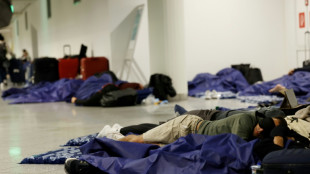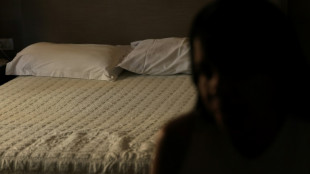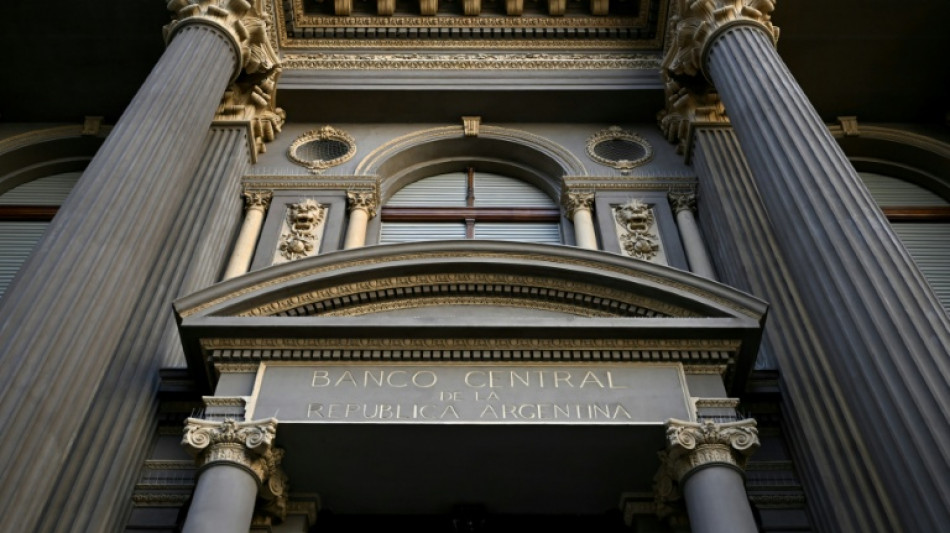
-
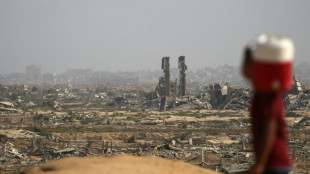 Netanyahu hopes to bring Gaza hostages home within days as negotiators head to Cairo
Netanyahu hopes to bring Gaza hostages home within days as negotiators head to Cairo
-
Ex-NFL QB Sanchez in hospital after reported stabbing

-
 Liverpool lose again at Chelsea, Arsenal go top of Premier League
Liverpool lose again at Chelsea, Arsenal go top of Premier League
-
Liverpool suffer third successive loss as Estevao strikes late for Chelsea

-
 Diaz dazzles early and Kane strikes again as Bayern beat Frankfurt
Diaz dazzles early and Kane strikes again as Bayern beat Frankfurt
-
De Zerbi living his best life as Marseille go top of Ligue 1

-
 US envoys head to Mideast as Trump warns Hamas against peace deal delay
US envoys head to Mideast as Trump warns Hamas against peace deal delay
-
In-form Inter sweep past Cremonese to join Serie A leaders

-
 Kolisi hopes Rugby Championship success makes South Africa 'walk tall' again
Kolisi hopes Rugby Championship success makes South Africa 'walk tall' again
-
Ex-All Black Nonu rolls back the years again as Toulon cruise past Pau

-
 Hundreds of thousands turn out at pro-Palestinian marches in Europe
Hundreds of thousands turn out at pro-Palestinian marches in Europe
-
Vollering powers to European women's road race title

-
 Struggling McLaren hit bump in the road on Singapore streets
Struggling McLaren hit bump in the road on Singapore streets
-
'We were treated like animals', deported Gaza flotilla activists say

-
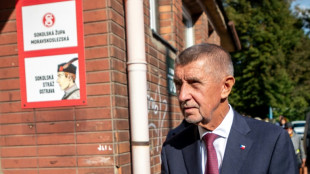 Czech billionaire ex-PM's party tops parliamentary vote
Czech billionaire ex-PM's party tops parliamentary vote
-
Trump enovys head to Egypt as Hamas agrees to free hostages
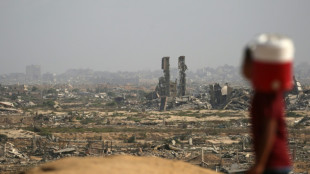
-
 Arsenal go top of Premier League as Man Utd ease pressure on Amorim
Arsenal go top of Premier League as Man Utd ease pressure on Amorim
-
Thousands attend banned Pride march in Hungarian city Pecs
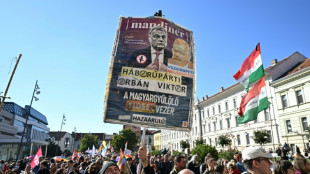
-
 Consent gives Morris and Prescott another memorable Arc weekend
Consent gives Morris and Prescott another memorable Arc weekend
-
Georgian police fire tear gas as protesters try to enter presidential palace

-
 Vollering powers to European road race title
Vollering powers to European road race title
-
Reinach and Marx star as Springboks beat Argentina to retain Rugby Championship

-
 Russell celebrates 'amazing' Singapore pole as McLarens struggle
Russell celebrates 'amazing' Singapore pole as McLarens struggle
-
Czech billionaire ex-PM's party leads in parliamentary vote
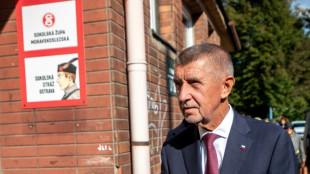
-
 South Africa edge Argentina to retain Rugby Championship
South Africa edge Argentina to retain Rugby Championship
-
'Everyone's older brother': Slipper bows out in Wallabies loss

-
 Thousands rally in Georgia election-day protest
Thousands rally in Georgia election-day protest
-
Sinner starts Shanghai defence in style as Zverev defies toe trouble

-
 Russell takes pole position for Singapore Grand Prix as McLaren struggle
Russell takes pole position for Singapore Grand Prix as McLaren struggle
-
Robertson praises All Blacks 'grit' in Australia win

-
 Government, protesters reach deal to end unrest in Pakistan's Kashmir
Government, protesters reach deal to end unrest in Pakistan's Kashmir
-
Kudus fires Spurs into second with win at Leeds

-
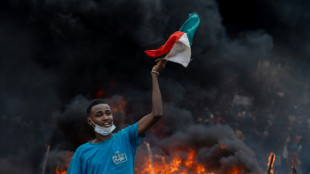 Rival rallies in Madagascar after deadly Gen Z protests
Rival rallies in Madagascar after deadly Gen Z protests
-
Egypt opens one of Valley of the Kings' largest tombs to public
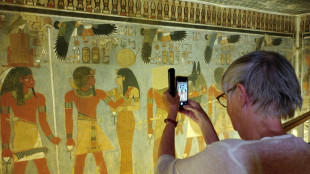
-
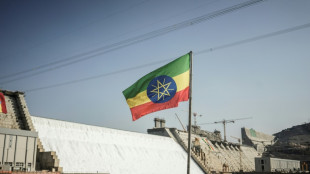 Ethiopia hits back at 'false' Egyptian claims over mega-dam
Ethiopia hits back at 'false' Egyptian claims over mega-dam
-
Sinner breezes past Altmaier to launch Shanghai title defence

-
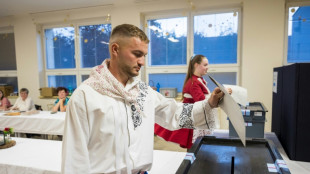 Czech ex-PM set to win vote, putting Ukraine aid in doubt
Czech ex-PM set to win vote, putting Ukraine aid in doubt
-
All Blacks down Wallabies to stay in Rugby Championship title hunt

-
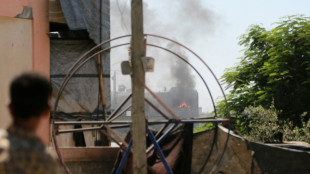 Gazans hail Trump ceasefire call as Hamas agrees to free hostages
Gazans hail Trump ceasefire call as Hamas agrees to free hostages
-
Zverev echoes Federer over tournaments 'favouring Sinner, Alcaraz'

-
 Yamal injury complicated, return date uncertain: Barca coach Flick
Yamal injury complicated, return date uncertain: Barca coach Flick
-
Conservative Takaichi set to be Japan's first woman PM

-
 Marsh ton powers Australia to T20 series win over New Zealand
Marsh ton powers Australia to T20 series win over New Zealand
-
Verstappen lays down marker in final Singapore practice

-
 French air traffic controllers cancel three-day strike
French air traffic controllers cancel three-day strike
-
'A bit unusual': Russia's Sochi grapples with Ukrainian drones

-
 Test skipper Gill replaces Rohit as India ODI captain
Test skipper Gill replaces Rohit as India ODI captain
-
Israel troops still operating in Gaza after Trump, hostage family appeals

-
 Jadeja stars as India crush West Indies in first Test
Jadeja stars as India crush West Indies in first Test
-
Pogacar eyes 'explosive' Euros race with Vingegaard, Evenepoel


Distrusting Argentines loath to bank their 'mattress dollars'
Argentine "Rita Lopez," 84, keeps her US dollars hidden in an empty pea can in the kitchen. Since childhood, she has steered clear of banks in a country that has veered from one economic crisis to another.
"I wouldn't even think of putting my savings in the bank," the former lawyer told AFP at her modest apartment in Buenos Aires. She asked to use a fake name to shield herself from thieves.
Lopez is not alone. The government estimates there are about $200 billion so-called "mattress dollars" out there -- five times the reserves of the Central Bank.
On Thursday, President Javier Milei's government launched a plan to encourage Argentines to bank these dollars, also commonly stashed under floor boards, in safety deposit boxes or offshore accounts.
Under the initiative, anyone can make a deposit of up to 100 million pesos (about $90,000) without having to declare the provenance.
The goal is to boost foreign reserves, stimulate the formal economy and bolster the peso.
But Lopez remains skeptical.
"The one who kept his savings (in the bank) was my father, he always lost, it always went bad for him," she said.
One of the worst moments, said Lopez, was in 2001 when the then-government put in place so-called "corralito" (corraling) measures to limit cash withdrawals and freeze bank accounts.
That move, intended to limit capital flight in the midst of a prolonged recession, was widely considered draconian and the spark for protests that left 39 people dead and toppled a president.
- Trafficking, corruption, smuggling? -
Argentina has faced 16 economic crises since 1860. Lopez has lived through seven of them in the last 50 years.
Countless people lost life savings as the system collapsed over and over, inflation spiraled out of control, and governments imposed currency controls.
Their fingers burnt, many Argentines took to trading their battered pesos for whatever greenbacks they could lay their hands on, and hoarding them at home. In cash.
Now Milei wants that money to enter the system, saying in an interview Monday: "I don't care in the slightest where the dollars come from." His is not the first Argentine government to try this.
As long as the dollars are not in the system, explained economist Julian Zicari of the University of Buenos Aires, they "do not contribute to (foreign) reserves nor generate lending capacity for banks."
Self-declared anarcho-capitalist Milei has imposed strict budget-cutting measures on the South American country since taking office in December 2023, resulting in inflation dropping from 211 percent to 118 percent last year.
Maintaining a stable exchange rate is one of his chief goals.
Last year, a tax amnesty brought in billions of dollars in deposits and, in April, Argentina received a first tranche of $12 billion from a new $20 billion dollar loan agreed by the International Monetary Fund (IMF).
Some fear the "mattress dollar" concessions will abet money laundering, though the government has denied this.
"By not requiring justification of origin... the possibility is enabled for funds from drug trafficking, human trafficking, public corruption or smuggling to be incorporated into the formal system," economist Pablo Tigani wrote in the Ambito newspaper.
In effect, he argued, it amounts to "an amnesty for those who did not pay taxes, without any distinction between tax evasion, illicit enrichment, or even money laundering."
Presidential spokesman Manuel Adorni insisted Thursday that those with undeclared funds "are not criminals, they are the vast majority of Argentines who have been abused by excessive taxes and controls."
Either way, Lopez insists nothing can get her to part with her pea can.
"One day the government tells you one thing and then another government comes in and does something else. I don't trust them. I wouldn't put my money in the bank," she said.
D.Schaer--VB

